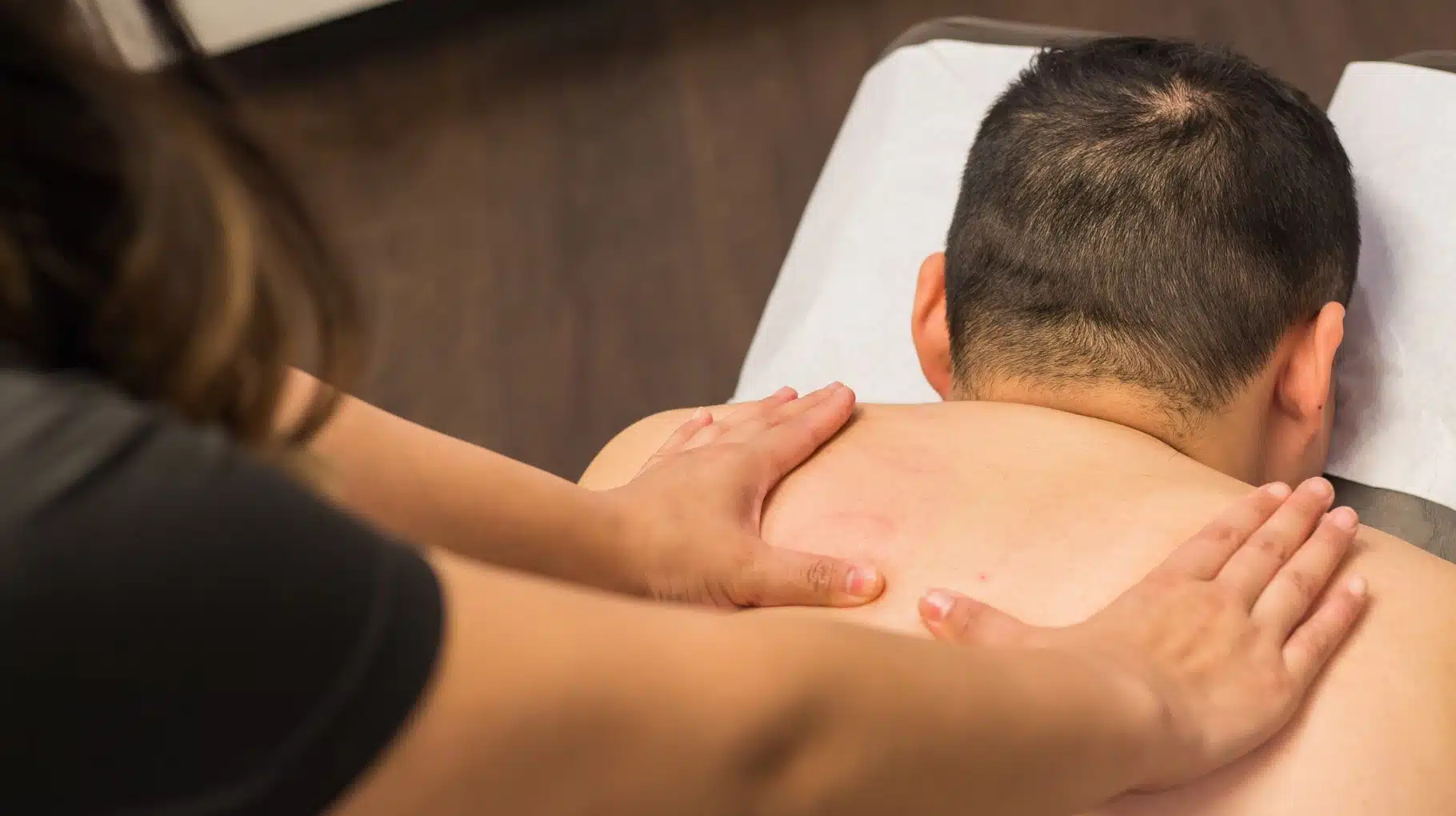Soft Tissue Mobilization Vancouver
Discover the power of soft tissue mobilization with our expert therapists at NRG in Vancouver. Using targeted techniques, we focus on reducing pain, enhancing mobility, and facilitating a quicker recovery.
Unlocking Mobility: The Power of Soft Tissue Mobilization
At Northwest Rehab Group, we believe in a personalized approach to therapy that addresses the unique needs of each individual. Our specialized therapists utilize Soft Tissue Mobilization to craft treatment plans tailored specifically to your health goals and conditions. This targeted approach helps in effectively managing pain, enhancing mobility, and accelerating recovery from various musculoskeletal issues.
Your journey to better health is supported by our team of experienced therapists who are dedicated to ensuring the best outcomes. Through a combination of expert knowledge and compassionate care, we make sure that every aspect of your treatment is geared towards achieving lasting wellness.
What to Expect
Why Consider Soft Tissue Mobilization?
Joint mobilization is a valuable therapeutic approach for managing musculoskeletal conditions. This technique involves precise manual therapies to restore normal joint function and reduce pain. Effective for conditions such as osteoarthritis, sports injuries, and post-surgical rehabilitation, joint mobilization enhances joint mobility, decreases pain, and accelerates recovery, facilitating your body’s natural healing mechanisms and improving overall physical performance.
Ready to experience the benefits of joint mobilization? Contact us today to schedule your personalized consultation and start your journey to better joint health and mobility.
F.A.Q.s
Learn about our joint mobilization services, designed to address specific health conditions and improve recovery.
What Is Soft Tissue Mobilization and How Does It Address Conditions Like Scar Tissue and Chronic Pain?
Soft Tissue Mobilization (STM) is a form of physical therapy specifically designed to address issues within the soft tissues, such as muscles, tendons, and connective tissues. This technique is particularly effective for treating conditions like scar tissue buildup, chronic pain, and chronic inflammation. By manually manipulating these tissues, STM enhances blood flow, facilitates the healing of connective tissues, and helps dissolve fibrosis in the soft tissues, leading to pain relief and restored function.
How Does STM Differ From Traditional Deep Tissue Massage?
STM is a more targeted therapeutic approach compared to traditional deep tissue massage. While both aim to alleviate muscle tension and pain, STM focuses on specific soft tissue dysfunctions and restrictions. Techniques used in STM, such as the Graston technique or instrument-assisted soft tissue mobilization, allow clinicians to specifically detect and effectively break down fascial adhesions and restrictions. These methods promote quicker healing and are clinically proven to achieve better outcomes for conditions like neck pain and other musculoskeletal issues.
Can STM Help With Conditions Like Tennis Elbow and Rotator Cuff Tendonitis?
Absolutely, STM is highly effective for repetitive strain injuries including tennis elbow and rotator cuff tendonitis. The therapy employs a variety of techniques such as cross fiber massage and assisted soft tissue mobilization, which are specifically tailored to treat the affected areas. These techniques help to reduce inflammation, break down scar tissue, and increase blood flow, which in turn helps to decrease pain and enhance mobility in patients suffering from these conditions.
What Are the Benefits of Using Instrument-Assisted STM?
Instrument-assisted Soft Tissue Mobilization (IASTM) utilizes specially designed stainless steel instruments that enable clinicians to more precisely identify and treat areas of soft tissue dysfunction. This method is particularly effective for deeper tissues that cannot be easily reached with hands-only techniques. IASTM is known for its ability to significantly lower discomfort levels, facilitate faster recovery, and help patients return to their everyday activities more quickly than traditional methods.
How Does STM Address Soft Tissue Restrictions and Enhance Mobility?
Soft Tissue Mobilization is highly effective in treating soft tissue restrictions, often resulting from injuries or chronic conditions. By using methods like fascial mobilization and assisted soft tissue techniques, STM helps to release tight fascia and improve mobility. These techniques specifically target fascial restrictions within the connective tissues, allowing for enhanced movement and pain relief. Additionally, improving blood flow to the affected areas promotes quicker healing and helps patients regain function for everyday activities.
What Role Does STM Play in Managing Chronic Inflammation and Soft Tissue Fibrosis?
STM plays a critical role in managing chronic inflammation and soft tissue fibrosis, conditions that can significantly restrict movement and cause pain. Techniques used in STM, such as instrument-assisted soft tissue mobilization and Graston technique, are designed to break down fibrosis and reduce inflammation within the soft tissues. This treatment approach is clinically proven to effectively restore tissue health, which helps to alleviate pain and improve overall mobility. Through targeted interventions, STM provides a therapeutic benefit that helps patients achieve quicker and more effective recovery outcomes.
If you have further questions or if our FAQs didn’t cover your concerns, please reach out to us directly. We’re here to assist you.

